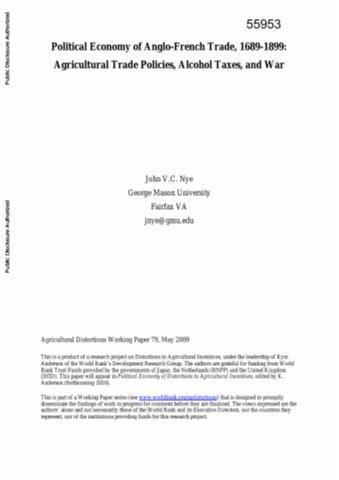Resource information
Britain contrary to received wisdom was not a free trader for most of the 1800s and, despite repeal of the Corn Laws, continued to have higher tariffs than the French until the last quarter of the century. War with Louis fourteenth from 1689 led to the end of all trade between Britain and France for a quarter of a century. The creation of powerful protected interests both at home and abroad led to the imposition of prohibitively high tariffs on French imports notably on wine and spirits, when trade with France resumed in 1714. Protection of domestic interests from import competition allowed the state to raise domestic excises which provided increased government revenues despite almost no increases in the taxes on land and income in Britain. The state ensured compliance not simply through the threat of lower tariffs on foreign substitutes but also through the encouragement of a trend towards monopoly production in brewing and restricted retail sales of beer. This history is analyzed in terms of its effects on British fiscal and commercial policy from the early 1700s to the end of the nineteenth century. The result is a fuller, albeit revisionist account of the rise of the modern state that calls into question a variety of theses in economics and political science that draw on the naive view of a liberal Britain unilaterally moving to free trade in the nineteenth century.


